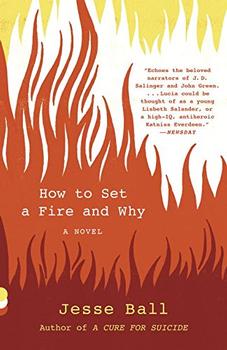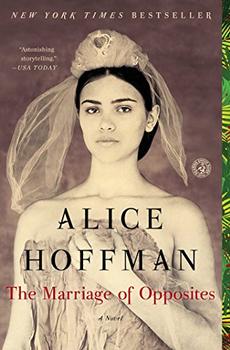Summary | Excerpt | Reading Guide | Reviews | Beyond the book | Read-Alikes | Genres & Themes | Author Bio

A Novel
by Andrea LevyAndrea Levy is one of the best storytellers around. Her follow up to Small Island (set in the 1940s and 1950s in both Jamaica and Britain) is set in the smaller of the two islands, Jamaica, and tells the history of slavery's end on the sugar plantations and the years of confusion that followed as slaves and planters made the transition to emancipation. Our unreliable narrator is the feisty Miss July. From the first scene, in which her conception is hastily accomplished through the rape of Kitty, a field slave, by her cruel Scotch overseer, the reader knows that she or he can expect an unblinking look at this period in Jamaican history related through the eyes of a former slave.
Through the continuous feverish imagery of heat, stench, bugs and sugarcane along with a light touch of Jamaican Negro dialect, Ms Levy conjures up the plight of a plantation slave's life. Yet, it is the resilience, humor, trickery and humanity of these people that impresses. By her own admission, Ms Levy wrote The Long Song with the aim of instilling pride in anyone with slave ancestors, but she has done more than this - by an alchemy of voice she has given us an almost voyeuristic glimpse into the intimate dynamic of oppressor and victim.
Miss July employs two voices: in first person she relates the trials of writing her story in a meta-fictional address to the reader, as she describes the problems of dripping ink and a bossy son who edits her writing; but the story of her life is presented in the third person providing a diffidence that allows for the woman's sorrows, secrets, indiscretions and petty crimes to escape judgment or shame. We get an inside look at the Christmas rebellion and the Baptist War and we feel the slippery negotiations that take place between former master or mistress and slave once emancipation becomes reality.
Best of all though is the story itself. As Miss July bears and loses children of her own, as she navigates the fine lines of mulatto, quadroon and full negro blood, I became immersed in her life. This is the first book I have read in a while that balances misery and loss with a fairly happy ending. The Long Song is recommended as the best sort of historical fiction and a fine pick for reading groups. I can imagine lively discussions over rum punch and fried plantains.
![]() This review was originally published in The BookBrowse Review in May 2010, and has been updated for the
May 2011 edition.
Click here to go to this issue.
This review was originally published in The BookBrowse Review in May 2010, and has been updated for the
May 2011 edition.
Click here to go to this issue.

If you liked The Long Song, try these:

by Jesse Ball
Published 2017
A singular, blistering novel about a teenage girl who has lost everything - and will burn anything.

by Alice Hoffman
Published 2016
A forbidden love story set on the tropical island of St. Thomas, about the extraordinary woman who gave birth to painter Camille Pissarro - the Father of Impressionism.
Read the best books first, or you may not have a chance to read them at all.
Click Here to find out who said this, as well as discovering other famous literary quotes!
Your guide toexceptional books
BookBrowse seeks out and recommends the best in contemporary fiction and nonfiction—books that not only engage and entertain but also deepen our understanding of ourselves and the world around us.